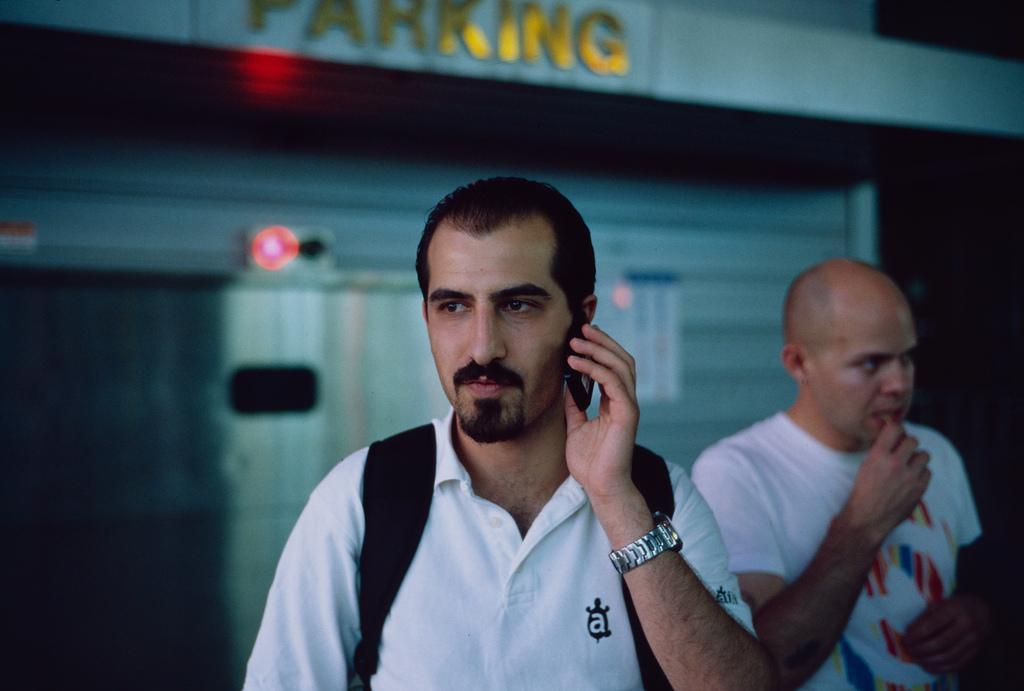Bassel Khartabil Safadi dead: One of Syria’s most famous activists has been executed in prison, widow confirms
Open software developer and freedom of speech advocate's death 'a terrible reminder of what many individuals and families risk in order to make a better society'

One of Syria’s leading pro-free speech and democracy activists has been confirmed as secretly executed in a regime prison almost two years ago, his widow has said.
Palestinian-Syrian Bassel Khartabil Safadi, who was lauded internationally “for insisting, against all odds, on a peaceful Syrian revolution”, was detained by the Syrian government in 2012, a year after Arab Spring protests first broke out.
He was allowed sporadic contact with his family before disappearing from records at Damascus’ Adra prison in October 2015. His wife Noura Ghazi Safadi - who continued to campaign for his release - said in a Facebook post late on Tuesday she had received confirmation her husband had been executed shortly after she lost contact with him.

“Words are difficult to come by while I am about to announce, on behalf of Bassel's family and mine, the confirmation of the death sentence and execution of my husband,” she wrote.
“He was executed just days after he was taken from Adra prison in October 2015. This is the end that suits a hero like him.
“This is a loss for Syria. This is loss for Palestine. This is my loss.”
Mr Safadi, born to a Syrian mother and Palestinian father, was 34 at the time of his death.
The advocate for freedom of speech, information and access to the internet was mourned by rights activists both inside Syria and internationally after news of his death broke.
“We are deeply saddened and outraged at this awful news," said Anna Neitstat, Amnesty International's Senior Director of Research.
Before the civil war erupted, Mr Safadi worked tirelessly to open up Syria - where censorship is rife - to internet access, bringing together engineers and democracy campaigners through his Aiki Lab project, and working on open software projects with Wikipedia and Creative Commons.
After the revolution began his work became even more important, giving demonstrators and activists the tools to communicate and broadcast news through social media. Mr Safadi is "credited with opening up the internet in Syria and vastly extending online access and knowledge to the Syrian people," a 2014 European Parliament report found.
Foreign Policy magazine named him one of its Top 100 Global Thinkers of 2012, and the Index on Censorship awarded him the 2013 Digital Freedom Award.
Before his death he created the New Palmyra Project, which he worked on from prison. It uses open source information to digitally recreate the ancient city of Palmyra, which was seized and partly destroyed by Isis in 2015.
After his disappearance, the MIT Media Lab offered him a research scientist position.
Human rights organisations have consistently deemed Mr Safadi a prisoner of conscience, campaigning for his release as well as access to legal representation and his family.
“Around the world, activists and advocates seek the sharing of culture, and open knowledge… the global commons of art, history, and knowledge, are stronger because of Bassel’s contributions, and our community is better because of his work and his friendship. His death is a terrible reminder of what many individuals and families risk in order to make a better society,” a statement from Creative Commons said.
More than 400,000 people have been killed in Syria’s complex civil war to date, the UN says.
According to the Syrian Network for Human Rights, 65,000 of those have disappeared in the regime’s notorious prisons.
“The tens of thousands of people currently locked away inside Syrian government detention facilities face torture, ill-treatment and extrajudicial executions. These cruel acts undoubtedly amount to war crimes and crimes against humanity," Ms Neitstat of Amnesty continued.
“We urge the Russian government to use its influence on the Syrian authorities to help end this madness. It must allow for independent monitors inside detention sites across Syria and for an investigation to be conducted. Thousands of lives are on the line.”
Join our commenting forum
Join thought-provoking conversations, follow other Independent readers and see their replies
Comments
Bookmark popover
Removed from bookmarks